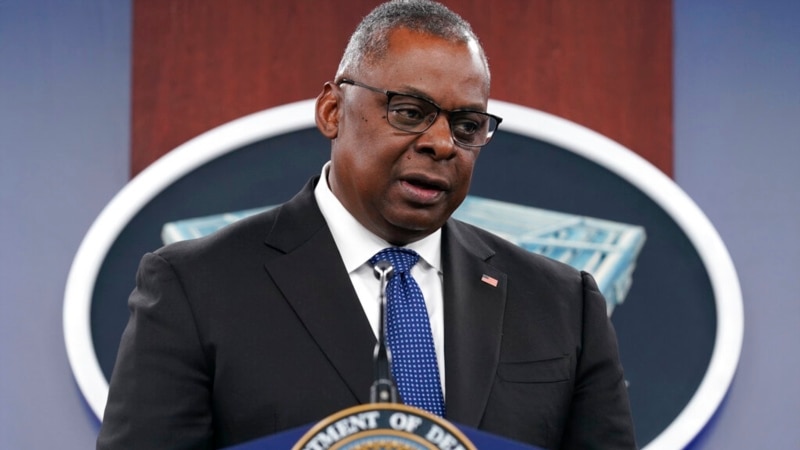Russia and China are “modernizing and expanding” their nuclear weapons arsenals, Secretary of Defense Lloyd Austin warned Friday, amid increasing tensions with Moscow over Ukraine and with Beijing over Taiwan.
Speaking at the headquarters of U.S. Strategic Command, the military command in charge of America’s nuclear weapons arsenal, Austin said the United States is “on the verge of a new phase” where two major nuclear powers are “strategic competitors.”
The U.S. defense secretary criticized Russian President Vladimir Putin for what he referred to as “deeply irresponsible nuclear saber-rattling” since invading Ukraine in February.
“Nuclear powers have a profound responsibility to avoid provocative behavior, and to lower the risk of proliferation and to prevent escalation and nuclear war,” he said.
Putin said Thursday “the threat of nuclear war is growing.”
He also suggested that if Russia rules out the first use of nuclear weapons it will leave itself vulnerable to a nuclear attack.
“Regarding the fact that under no circumstances will Russia strike first, if it does not strike first under any circumstances, then it will not strike second either, because the possibilities [to do so in case of] a nuclear strike on our territory are very limited,” he said.
Responding to Putin’s remark, a Strategic Command representative said, “The stakes are way too high not to take that seriously.”
“They would not take first strike off the table,” added the representative, who spoke to reporters on the condition of anonymity.
Russia has the largest stockpile of nuclear warheads in the world, followed by the U.S., which has an estimated 3,800 warheads in active status.
New START treaty talks between the U.S. and Russia aimed at reducing nuclear arsenals have been stalled since Russia invaded Ukraine on February 24.
Last month, a Pentagon report warned that China now has more than 400 nuclear warheads, approximately doubling its nuclear arsenal in just two years.
The pace of China’s nuclear expansion may enable Beijing to field a stockpile of about 1,500 warheads by 2035, according to the Pentagon’s annual “China Military Power” report to Congress.
On Monday, the top Republicans on the Senate and House Armed Services Committees sent a letter to outgoing U.S. Strategic Command chief Adm. Charles “Chas” Richard urging the military to declassify a determination it recently sent to Congress pursuant to a clause in the fiscal 2022 National Defense Authorization Act.
The clause requires the military to notify Congress if China either deploys more intercontinental ballistic missiles (ICBM), deploys more ICBM launchers, or has more nuclear warheads equipped on its ICBMs than the United States, according to Defense News.
Another Strategic Command representative told reporters a response to the request by Sen. Inhofe was “in development” and could be sent as soon as today.
“My understanding is it will be an unclassified response,” the representative added.
Austin’s comments Friday came during a change of command ceremony where Richard passed leadership of U.S. Strategic Command to Air Force Gen. Anthony “Tony” Cotton.
Richard’s 41-year career of military service included becoming the youngest commanding officer of a nuclear-powered submarine.
Cotton has commanded at the squadron group and wing levels and was most recently the head of Air Force Global Strike Command and Air Force Strategic-Air at Barksdale Air Force Base in Louisiana.

